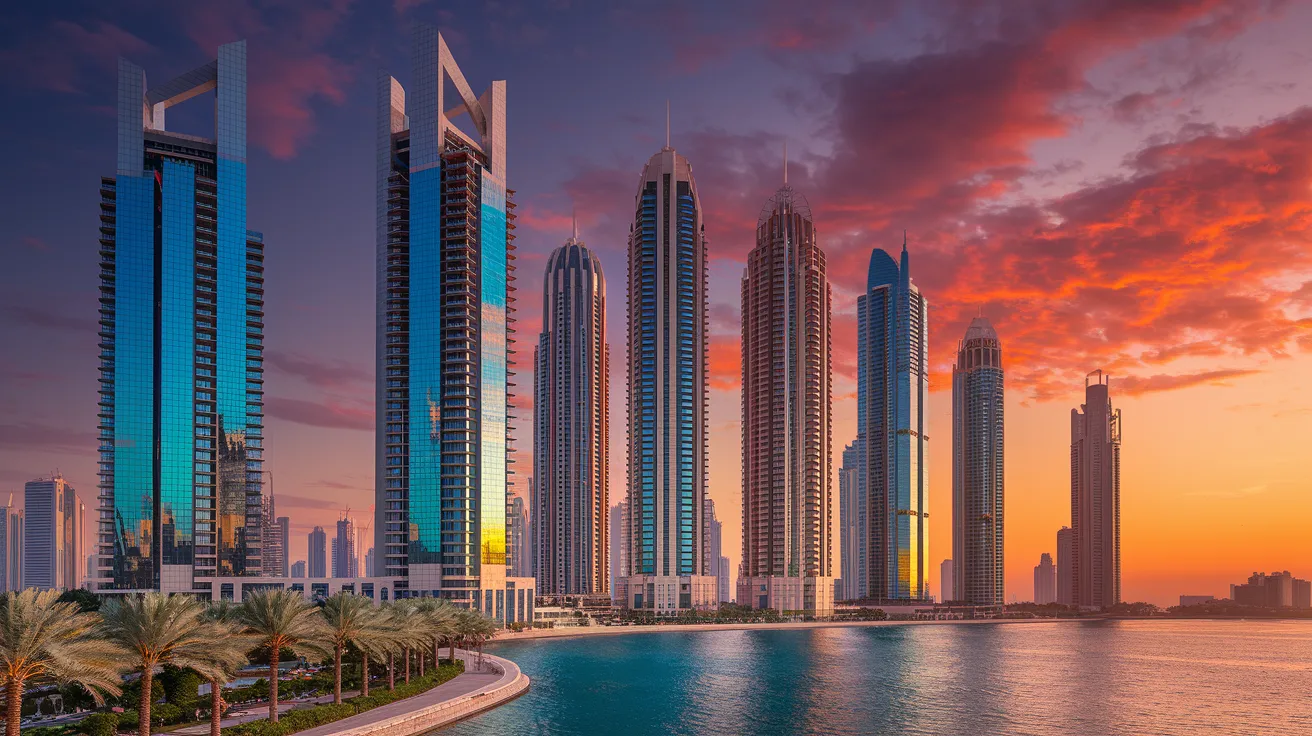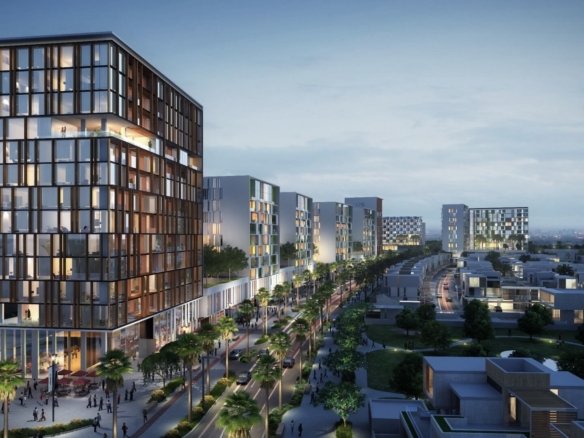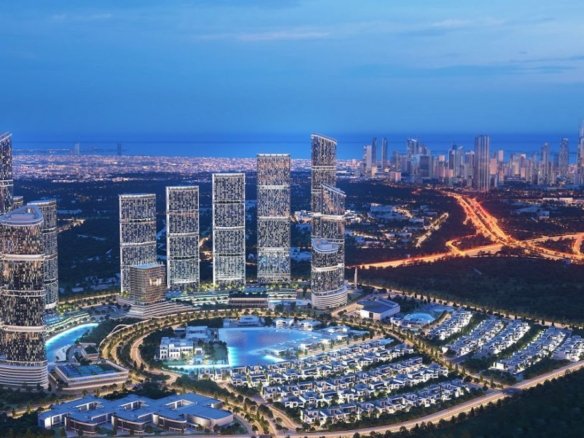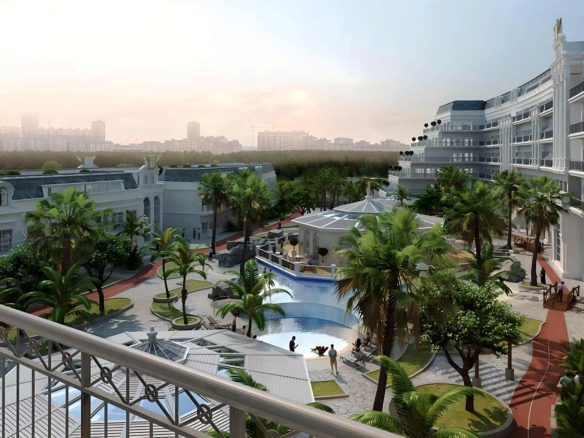Introduction
Dubai’s real estate market offers dynamic opportunities for savvy investors, and one strategy that continues to gain traction is flipping property in Dubai, particularly off-plan units. This involves purchasing a property during its construction phase and then reselling it before completion, aiming to capitalize on capital appreciation. While it promises rapid returns and is a popular form of short term real estate investment, it requires a deep understanding of market trends, legal frameworks, and developer requirements.
This ultimate “how-to” guide will break down the process of flipping off-plan property in Dubai. We’ll cover the essential steps, delve into Dubai property flipping rules, explain crucial documents like the MOU and NOC for flipping, and equip you with the knowledge to potentially achieve significant profits in this exciting segment of the market.
What is Flipping Off-Plan Property?
“Flipping” in real estate means buying a property with the intention of reselling it quickly for a profit, often without taking full possession or holding it long-term for rental income. When applied to off-plan property in Dubai, it typically involves:
- Buying at Launch: Securing a unit in an off-plan project directly from the developer, often at a competitive pre-launch price or with attractive payment plans.
- Market Appreciation During Construction: As construction progresses and market demand grows, the property’s value increases.
- Reselling Before Handover: Selling the property to a new buyer before its completion and handover, capitalizing on the price difference.
This strategy appeals to investors seeking a relatively short term real estate investment with the potential for substantial capital gains.
Why is Flipping Off-Plan Property Popular in Dubai?
Dubai offers a unique environment that supports successful off-plan flipping:
- Rapid Market Growth: Dubai’s property market has seen significant capital appreciation, especially in prime locations and new master communities. Off-plan properties in sought-after areas appreciated 15-20% in 2024 before project completion, with forecasts for continued growth in 2025.
- Flexible Payment Plans: Developers often offer attractive, staggered payment plans (e.g., 60/40, 70/30) that require relatively lower upfront capital, allowing investors to participate with manageable initial outlays. Some also offer post-handover payment plans, which can improve cash flow for longer holds.
- No Capital Gains Tax: Dubai has a tax-free environment, meaning there is generally no capital gains tax on property sales, maximizing your profit.
- Government Initiatives: Pro-investor policies, economic diversification (beyond oil), and continuous infrastructure development support a stable and growing real estate market.
- High Demand: A growing population, influx of high-net-worth individuals, and booming tourism sector ensure consistent demand for new and quality properties.
The Ultimate “How-To” Guide: How to Flip Off-Plan Property in Dubai
Successful flipping property in Dubai involves careful planning and execution. Here’s a step-by-step process:
Step 1: Strategic Project Selection
This is the most critical step for profitable flipping.
- Location, Location, Location: Focus on high-demand, high-growth areas. Look for Emaar new projects in areas like Dubai Hills Estate, Dubai Creek Harbour, Emaar Beachfront, or ambitious DAMAC developments like DAMAC Lagoons. Emerging areas with planned infrastructure (e.g., new metro lines, malls, business hubs) also offer strong potential.
- Reputable Developer: Always choose projects from established developers with a proven track record of quality and timely delivery (e.g., Emaar Properties, DAMAC Properties, Sobha Realty, Nakheel). Their reputation directly impacts buyer confidence and resale value.
- Early Phase Buying: Aim to purchase in the very early stages of a project launch (pre-launch or first phase) when prices are typically lowest. This maximizes your potential for capital appreciation as the project gains momentum.
- Understand the Market: Research demand-supply dynamics for specific property types (e.g., studios often have higher percentage rental yields, but luxury Nakheel villas or Emaar villas might offer higher absolute appreciation).
Step 2: Understand Dubai Property Flipping Rules (Developer & DLD Requirements)
Before you can resell an off-plan property, you must meet certain conditions. These are set by the Dubai Land Department (DLD) and the specific developer.
- Minimum Payment to Developer: This is a crucial rule. Most developers require the original buyer to have paid a minimum percentage of the total property value before they permit a resale. This typically ranges from 30% to 50%.
- Example: If a property is AED 2,000,000 and the developer’s rule is 40% paid, you must have paid AED 800,000 before you can initiate the resale.
- Crucial: This percentage is stipulated in your original Sales and Purchase Agreement (SPA) with the developer. Always check your SPA thoroughly for specific resale clauses.
- No Objection Certificate (NOC): You will need to obtain a No Objection Certificate from the developer. This document confirms that you have met all their conditions for resale and that they have no objection to the transfer of ownership to a new buyer. The developer might charge an administrative fee for the NOC (typically AED 5,000 – AED 10,000).
Step 3: Find a Buyer & Negotiate Terms
- Timing is Key: Monitor market conditions closely. The best time to flip is when there is strong demand and prices are trending upwards, ideally after significant construction milestones are achieved.
- Market Your Property: Engage a reputable, RERA-licensed real estate agent specializing in off-plan resales. They have access to networks of buyers and can effectively market your property.
- Set Your Price: Calculate your total costs incurred so far (payments to developer, DLD fees, agent commission, NOC fees) and add your desired profit margin. Be realistic about market demand and comparable sales.
- Negotiate: Be prepared to negotiate. The buyer will typically take over the remaining payment plan from the point of sale.
Step 4: The Resale Transaction Process: MOU and NOC for Flipping
Once a buyer is found and terms are agreed, the formal process begins:
- Memorandum of Understanding (MOU) / Form F: This is a legally binding document (known as Form F in Dubai) signed between you (the seller) and the new buyer. It outlines all the agreed-upon terms, including the sale price, the amount the new buyer pays you (to reimburse your payments made plus your profit margin), and the remaining payment schedule to the developer.
- Obtain Developer’s NOC: As mentioned in Step 2, this is mandatory. The developer will issue the NOC after confirming you’ve met their payment requirements and any other conditions.
- Transfer of Ownership:
- The transaction typically takes place at a Dubai Land Department (DLD) approved Trustee Office.
- The new buyer will pay you the agreed-upon upfront amount (your initial investment plus profit).
- The new buyer will also pay the 4% DLD transfer fee for the entire property value (even if you, the original buyer, paid 4% initially). This is a common practice in resales.
- The new buyer will take over the original SPA and the remaining payment plan with the developer. The property’s registration (Oqood certificate) will be transferred to the new buyer’s name.
Potential Profits from Short Term Real Estate Investment (Flipping)
The profitability of flipping property in Dubai can be significant, especially in a bullish market. Recent data shows:
- Capital Appreciation: Off-plan property prices in sought-after locations appreciated by 15-20% in 2024 before project completion. Some successful flips have reported profits of 30-40% or even higher on the capital invested within a relatively short period (e.g., 8-18 months).
- Case Study Example (Provident Estate): A villa bought for AED 8.8 million, renovated with AED 2.1 million, and sold for AED 14.99 million, yielded a 20% profit in just 8 months. (While this example is for a ready property, it illustrates the rapid gains possible with strategic moves).
- Market Outlook: The first half of 2025 has seen Dubai’s real estate market hit historic highs, with transactions worth over AED 431 billion. Foreign investment contributed AED 228.35 billion in H1 2025, signaling continued strong demand.
Risks of Flipping Property in Dubai
While lucrative, flipping carries inherent Dubai real estate risks:
- Market Downturns: A sudden market correction or slowdown during the holding period can reduce or even eliminate your profit margin. While a full “Dubai property market crash” is unlikely in 2025 due to strong regulations, smaller adjustments are possible.
- Developer Delays: Significant construction delays can extend your holding period, impacting your ROI and tying up your capital longer than expected.
- Liquidity: Finding a new buyer at the desired price can be challenging if market sentiment shifts or if there’s an oversupply of similar units.
- Competition: As flipping becomes more popular, competition among sellers can increase, potentially squeezing profit margins.
- Developer Resale Restrictions: Some developers have strict rules or even temporary bans on reselling until a very high percentage of payments are made (e.g., 50% or more), limiting your exit options. Always check the SPA.
- Transaction Costs: Multiple DLD transfer fees (paid by the new buyer), NOC fees, and agent commissions on both the initial purchase and the resale can eat into profits.
| Pros | Cons |
| Potential for high, quick capital gains | Market fluctuations can reduce profit or lead to loss |
| Lower initial cash outlay than buying ready property | Risk of project delays impacting exit strategy |
| Tax-free capital gains (generally) in Dubai | Developer-imposed minimum payment for resale |
| Benefit from early bird pricing & incentives | High transaction costs (multiple DLD fees) |
| Ideal for short term real estate investment strategy | Can be illiquid if market conditions change suddenly |
Frequently Asked Questions (FAQs)
Q1: What is the minimum percentage I need to pay before I can resell an off-plan property in Dubai?
A1: The minimum payment percentage required before you can resell an off-plan property in Dubai typically ranges from 30% to 50% of the total property value. This exact percentage is determined by the developer and stated in your Sales and Purchase Agreement (SPA).
Q2: Is the 4% DLD transfer fee paid multiple times when flipping property in Dubai?
A2: Yes, the 4% DLD transfer fee is typically paid each time the property changes ownership. So, when you (the original buyer) acquire the property, you pay it. When you resell it off-plan, the new buyer will pay the 4% DLD transfer fee for the entire property value, even if you had paid it initially. This cost should be factored into your profit calculations.
Q3: What is the difference between an MOU and NOC for flipping?
A3:
- An MOU (Memorandum of Understanding), also known as Form F, is a legally binding agreement between the seller (you) and the new buyer, outlining the terms of the resale, including the price and payment schedule.
- An NOC (No Objection Certificate) is a document issued by the developer, confirming that they approve the transfer of ownership from you to the new buyer, provided you have met their specific resale conditions (e.g., minimum payment). You cannot transfer ownership without this.
Q4: How long does a typical off-plan flip take in Dubai?
A4: A typical off-plan flip in Dubai can take anywhere from 6 months to 2 years, depending on market conditions, how quickly you find a buyer, and when you meet the developer’s minimum payment requirement for resale. Successful flips often happen within 12-18 months of the initial purchase.
Q5: What are the best areas for flipping property in Dubai in 2025?
A5: In 2025, areas with high demand, ongoing infrastructure development, and consistent new off-plan launches are good for flipping. These include Business Bay, Jumeirah Village Circle (JVC), new phases in Dubai Creek Harbour, specific clusters in DAMAC Lagoons, and luxury villa communities like Emaar The Oasis or Dubai Hills Estate where new phases are still being released.
Ready to Master Flipping Property in Dubai?
Flipping property in Dubai off-plan can be a highly lucrative short term real estate investment strategy, offering significant capital gains within a relatively short timeframe. By understanding the Dubai property flipping rules, leveraging key documents like the MOU and NOC for flipping, and making informed decisions, you can confidently navigate this dynamic market.
Our expert team at dubaioffplan.ae specializes in identifying the most promising off-plan projects for flipping. We provide market insights, connect you with the right opportunities, and guide you through every step, ensuring compliance with Dubai property flipping rules and maximizing your profit potential.
Ready to make your first successful flip? Get a free consultation with a Dubai property flipping expert and receive a curated list of high-potential off-plan projects. Click here to book your call!





Join The Discussion